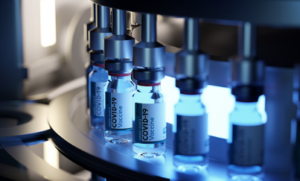Pharmpac NZ PET Packaging for Online Veterinary Compounding
Online veterinary pharmacies are taking an increasingly important role in pet health. These websites sell prescription medicines, supplements and pet foods. They also offer compounding services. However, veterinarians rarely conduct compounding in their practices themselves.
PET is a recyclable material that uses less energy and fossil fuel than glass or aluminium bottles. Its inherent barrier properties help to preserve products. It can be recycled into new bottles and containers, carpets and fiberfill for soft furnishings like sleeping bags.
Recyclable
PET is a sustainable Pharmpac NZ PET packaging material that can help reduce waste production. Its raw materials come from oil, natural gas and minerals, requiring just a tiny fraction of the energy needed to produce glass, aluminium and other containers. In addition, PET plastic is non-toxic and releases no harmful toxins into the environment.
Recycling PET involves grinding the plastic into flakes, which are then cleaned and heated to remove glue and other contaminants. The chips can then be turned into new bottles and containers or used for products like carpets, fiberfill for soft furnishings, industrial strapping, and other applications. PET bottles can also be recycled many times over, with only a minimal loss of quality.
During the manufacturing process, PET containers can be decorated with printed designs or effects. It allows brands to differentiate their product and increase customer loyalty. The containers are also shatterproof and have an inert, chemical-free composition, making them safe for pharmaceuticals and personal care products.
In addition, the bottles are designed to be easy to pour and clean, increasing customer safety and efficiency. The PET bottles are lightweight, so they can be shipped more efficiently and take up less space in warehousing and shipping facilities. In addition, they can withstand temperature changes, which makes them ideal for liquids.
PET bottles and containers are one of the most recycled materials in the world, with over 1.5 billion pounds of plastic recovered annually. This high level of recyclability results from the material’s unique characteristics, including its clarity, durability and low weight. The recyclability of PET is further enhanced by limiting the number of colour additives and non-water-soluble adhesives used on labels.
Lightweight
Pharmpac NZ PET packaging is much lighter than other container materials, which makes it easier to handle. As a result, it uses less fossil fuel and energy during its entire lifecycle, resulting in fewer greenhouse gas emissions and less solid waste. It translates to lower operating costs for manufacturers.
In addition to its environmental advantages, PET plastic is a more sustainable choice than glass containers, which are expensive, fragile, and inflexible. It is non-toxic and does not leach toxins into the environment or release chemicals that can contaminate foods and medicines. It also has excellent fluid flow resistance and is easily formed into unique bottles, trays, and cup designs.
 Medicine bottles must be shatterproof, lightweight, and child-resistant to meet FDA standards. PET plastic is ideal for this type of packaging because it increases product and patient safety while meeting regulations.
Medicine bottles must be shatterproof, lightweight, and child-resistant to meet FDA standards. PET plastic is ideal for this type of packaging because it increases product and patient safety while meeting regulations.
PET bottles can be reused, which helps reduce energy consumption and reduces landfill waste. In addition, they can be recycled into new bottles, trays, and cups. The process also reduces greenhouse gases and saves energy, creating a closed-loop system and supporting circular economies. rPET can also make textiles like pillows and duvets, automotive components like carpeting and shoe linings, and industrial end-use products like geotextiles and roof insulation materials.
Durable
PET bottles are ideal for packaging liquids, pills and powders. Their lightweight, shatterproof design allows easy transport and storage, increasing product and patient safety. Additionally, they are odourless and tasteless, making them a perfect choice for medicine. Moreover, they can be moulded into various shapes and sizes, allowing companies to create unique packaging that meets their customer and financial goals.
Polyethylene terephthalate is a recyclable plastic made through a two-step process, where preforms are heated and biaxially stretched. The resulting material is explicit and highly transparent, making it the ideal container for beverages and food liquids. Additionally, it is very durable and can withstand temperatures between -148 and 176 degrees Fahrenheit.
In the US, 1.5 billion pounds of used PET containers are recycled annually. This reprocessing converts PET into new packaging, trays and cups. It also reduces greenhouse gases, saves energy and helps to create a closed-loop system that supports circular economies.
The demand for Pharmpac NZ PET packaging is expected to increase globally due to a rise in the number of people taking medicines, especially antiviral drugs. This growth is driven by a combination of factors, including the COVID-19 pandemic and the growing global consumption of drugs.

